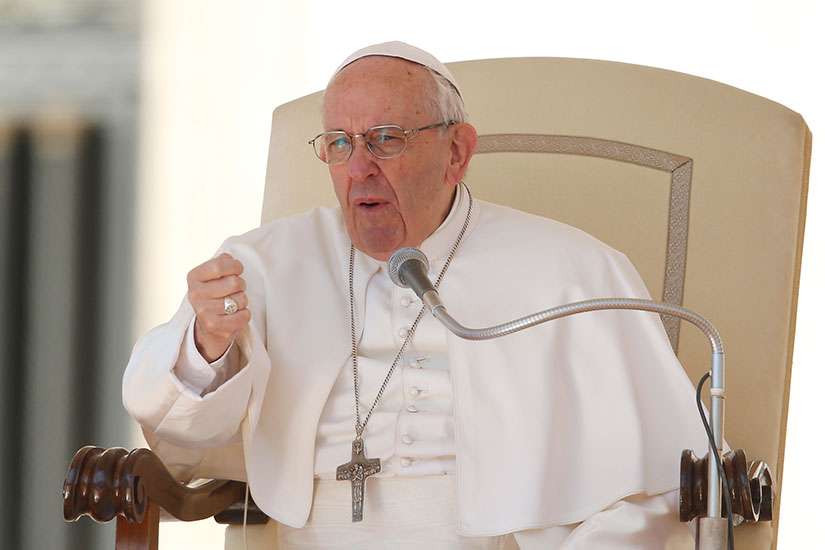Taking his queues from the day’s Gospel, in which St. John’s account of Our Lord’s mercy toward the woman caught in adultery was proclaimed, and from the 1st Reading, from the Book of the Prophet Daniel, which recounted the story of Susanna, the innocent woman and chaste wife falsely accused of adultery by the very men, who were appointed judges over God’s people, in which the Lord first raised up Daniel as His prophet, to secure justice in the form of vindication for Susanna and punishment for her false accusers, Pope Francis said:
“There have always been corrupt judges, and there still are corrupt judges everywhere in the world. Why is corruption in people? Sin is one thing: "I have sinned, I’ve stumbled, I’ve been unfaithful to God, but then I try not to do it again, or I try to set things right with the Lord, or at least I [admit] that all is not well.” Corruption, though: that is when sin enters ever more deeply, ever more deeply, ever more deeply into your conscience, and will not leave you room even to breathe.”
Everything, that is, “becomes sin”: that is “corruption.” The corrupt, Pope Francis went on to say, believe “with impunity” that they are doing good. In the case of Susanna, the elderly judges “were corrupted by the vices of lust,” threatening to give “false testimony” against her. Nor was it either the “first case” recorded in Scripture of false witness: The Pope recalled also Jesus own case, his condemnation on false testimony. In the case of the true adulteress, we find other judges, Pope Francis said, who were “out of their gourds” having allowed there to grow in their minds an interpretation of the law that was, “so rigid as to leave no room for the Holy Spirit”: that is to say, “the corruption of legality, of legalism, against grace.” Then there is Jesus, the true Teacher of the Law, before the false judges who had “perverted the heart” or gave unjust sentences “oppressing the innocent and absolving evildoers”:
“Jesus says few things, very few things. He says: ‘He that is without sin, cast the first stone at her.’ To the sinful woman [He says], ‘I do not condemn you. Do not sin any more’ – and this is the fullness of the law, not that of the Scribes and Pharisees who had corrupted their minds by making so many laws, many laws, without leaving room for mercy. Jesus is the fullness of the law and God judges with mercy.”
Leaving the innocent woman free, to whom Jesus says “Mom” because – Pope Francis said – “His mother is the only innocent one,” for the corrupt judges are reserved “not nice words” through the mouth of the prophet: “wizened with vices”. The Pope’s invitation therefore is to think of the evil “with which our vices judge people”:
“We, too, judge others in our hearts: are we corrupt, or not yet? Stop. Let’s stop ourselves, and let us look to Jesus, who always judges with mercy: ‘Neither do I condemn you. Go in peace and sin no more.”


